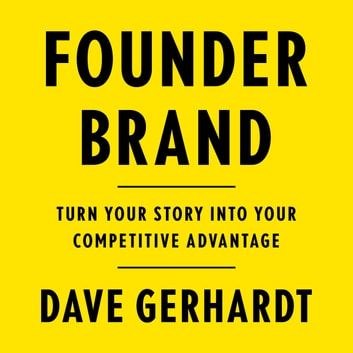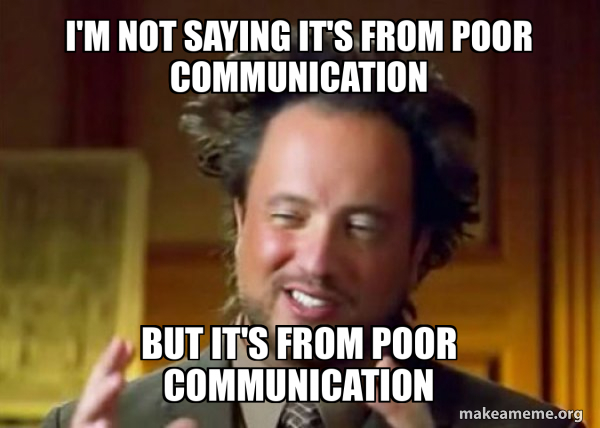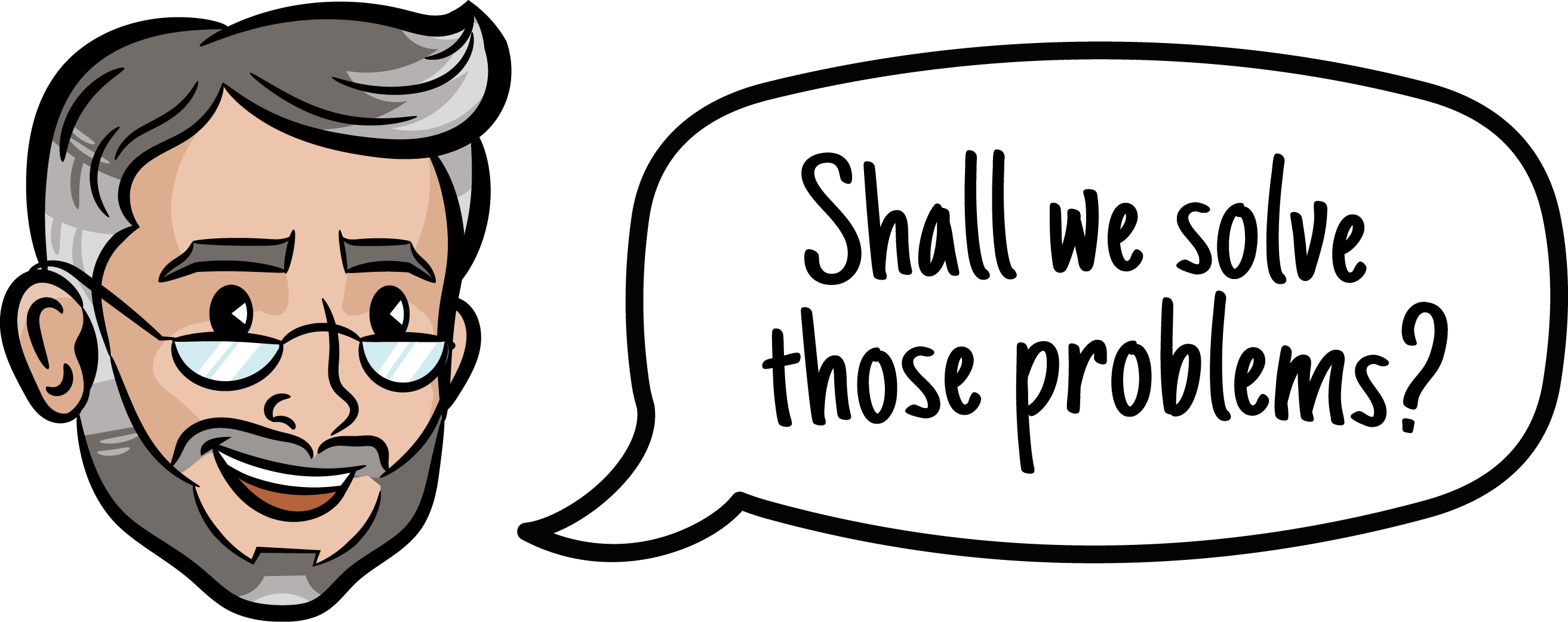In B2B you’ll find businesses that feature their founder heavily (a founder brand) and those where the founder is not present at all. On Instagram and TikTok, you’ll find many small companies are very founder focused (acting as their own influencer), whereas larger brands feature their fans.
There are logical reasons to choose to be a founder brand and there are equally valid reasons not to.
As with many concepts, eventually someone wrote a book on the topic. It got some traction, especially in software circles.
Dave Gerhardt‘s Founder Brand tells his story as a marketing executive who ran a founder’s public presence for a SaaS product that was under development and the goal was to build an engaged audience before they could even get their hands on the product.
David Cancel was the CEO and the company was called Drift. It eventually got acquired by privately-held SalesLoft. Neither Drift nor SalesLoft are widely known brands even within technology circles even though SalesLoft pioneered what is now known as prospecting cadences or sequences back in 2014-2016, so unfortunately the book has not aged well.
However, there are some great takeaways for if you choose to be a founder brand.
You can do it the right way or you can actually hurt your business.

This article dives into the Pros and Cons and will help you become a founder brand if you choose to.
Why Would You Want to Be a Founder Brand?
At Sales Funnel Professor, we audit sales funnels for companies across the globe. Being a “founder brand” contributes to a number of lenses through which we examine sales funnels:
- Memorability
- Credibility
- Emotion Quotient
- My Tribe Vibe
A strong positioning statement includes the reason for a company to exist in the first place, so it’s a natural place to tell the founding story if the company isn’t already decades old.
If you’ve read Dave Gerhardt’s book on the topic, he also ran this play, so he could start marketing a SaaS product that didn’t exist and before they even had a budget for a SaaS CMO. A product that doesn’t exist is definitely an interesting marketing challenge and Gerhardt details what they were able to accomplish with his founder, who happened to have been a successful CEO of other marketing tech companies prior to the one in which Dave was involved.
Whether you read the book or not, the takeaway is if the founder’s personal brand (whether it exists or needs to be built) and experience can enhance Memorability, Credibility, Emotion Quotient, and My Tribe Vibe scores, it might make sense to lean into that person’s presence in the marketing.

Professor’s Note:
Gerhardt shares a great messaging framework (that you can use even if you don’t choose to be a founder brand):
“1. You know how______(insert the problem or old way of doing things that you aim to change)?
2. Instead of ______(problem/old way), we have a ______(solution/new way).
3. We call it ______(name of the product or brand or category you’ve created).
What Does It Require to Be a Founder Brand?
Being a founder brand means the founder is present in all kinds of content and its production:
- Being quoted on the website with a headshot
- Being vocal on social media on a daily basis
- Being a podcast guest and the related prep and distribution
- Giving talks at tradeshows and the related travel
- General ambassador work
- Telling your story over and over
- Correspondence specific to this work
That’s a big commitment! If you dabble on these, it will be hard to see results.
If you’re an introvert, it’s an even larger commitment and much of this work may fall into what you find taxing about your day versus what you find reinvigorating. On the flipside, you may be at an advantage in certain ways because you’re able to stay more attuned to what is resonating with your audience.
If you’re an extrovert, you’ll likely find this type of content production less taxing, but you also need to be careful about being too visible and specifically talking about yourself more than the people you serve. Your founder story is part of the reason for the company’s existence, but the top reason for it to exist is to solve your client’s problems: that should always be the core message.
The second half of Gerhardt’s book is about creating your own podcast (as the host) specifically. He details how that work can serve as seed content for other channels like your SEO top of funnel and Organic Social top of funnel. That’s a really big commitment and getting a podcast audience developed takes significantly more work than getting to the top of Google or organic search terms with intent.
Why Wouldn’t You Want to Be a Founder Brand?
So the credibility and relatability boosts can be helpful. If a founder enjoys producing content, some of that can be used as seed content for other pieces. But there are also quite a few drawbacks to being a founder brand that you need to consider.
Time Commitment
Dave Gerhardt spends almost 20% of his book talking about how founders should start podcasting. In contrast, a lot of companies give up on SEO before ever hitting paydirt. The time it takes to get any revenue attributed to podcasting is probably at least double that of starting SEO from scratch if you’re lucky.
On the other hand, with solid PPC intelligence and strong conversion rate optimization, you can start closing business within a couple of weeks.

Professor’s Note
Podcasts have unique characteristics:
- Each content item takes significantly more time to produce than other non-video types
- Each item takes more time to consume and requires ample time and appropriate equipment to listen to a podcast
- You’ll need to promote your podcast heavily to get listeners unlike other mediums where the promotion is built-in
- You’ll need to be so good that you displace other podcasts in your target audience’s playlist to get the number of touches required to drive business
- You’ll likely not reach many busy target audiences like CEOs, who may prefer to consume content via scansion
Gerhardt rightfully points out that podcasts can be turned into blogs and social media posts. That’s true, but you could also write a blog in about 1/5th the time it takes to create a podcast and perhaps even faster via dictation and then turn that into social media posts.
As a founder (especially with a family life), time is so precious. If you’re creating content, what are you not doing? You’re not closing business, improving your product or service, nor training your people.
Content generation in most scenarios can be delegated to individual contributors with some supervision. But much of what a founder does cannot be delegated to anyone.
Multiple Companies
Elon Musk (Tesla, SpaceX, X (formerly Twitter), the Boring Company, and others) and Jack Dorsey (Square & Twitter) are probably the most well-known dual CEOs. Elon didn’t found Tesla nor Twitter but he does constantly get grief from investors for having divided attention.
Jack Dorsey received similar feedback for his dual roles at Square and Twitter before it sold.
But it’s not uncommon for serial entrepreneurs to own multiple companies, whether acting as CEO or not.
How do you choose which company gets your founder juice? What if the companies don’t have much to do with each other? It can cause cognitive dissonance and distrust.
Lacking the Credibility
There are plenty of startup founders that are building a company in their early 20s. They may be willing to do the work and hopefully can surround themselves with great advisors, but they simply don’t have sufficient relevant experience to create any sort of confidence.

Other companies get founded by people in their 30s and later who have never led a company who just see a problem (in another industry) and want to solve it.
So the founder would really only be able to speak to passion and that’s not a bad thing but can be captured in an origin story without causing confusion in other marketing. That founder is developing expertise in the new industry on the fly, not applying years of experience to building a company.
Founder Doesn’t Have the Personality for It
Seth Godin calls a great brand a Purple Cow. If your marketing features a white male founder, you”re more like a Holstein.
Additionally, some founders just don’t have the charisma to be public-facing or have strong political (or other) opinions that will be off-putting to a significant portion of the company’s audience.
While authenticity is critical for a likeable founder, it can be the death of a company led by a founder who has questionable motives.
Public-speaking training and practice answering unscripted questions can help, but a company really has to be honest with itself about whether or not the founder is the best ambassador. Do strangers enjoy listening to the founder? Do they naturally trust her/him?

For a long time, Facebook’s Sheryl Sandberg was just as visible as founder Mark Zuckerberg and the one to speak on the record. She was much more likeable and unlikely to say off-putting things in public.
The Goal Is to Exit
As a CEO of a company that you want to sell, your personal involvement becomes intricately connecting to the brand.
For an acquiring company, they have to come up with a plan to extricate you without damaging the company’s brand and sales.
As a founder planning to exit, you want to build a company that stands on its own. Can you do that if you’re so directly working in the business versus on the business?
Can Being a Founder Brand Be Done Wrong?
If you read Donald Miller’s Building a StoryBrand, he quickly corrects a common issue with how marketing gets done wrong: Many companies just talk about themselves. They may kitchen sink features or services they provide but not speak to how they help clients.
In good marketing, the hero of the story is the customer. The brand/company is the guide.
Wrong Message Conveyed Externally
Dave Gerhardt tells the story of creating a founder brand for a company without a live product. But many people with live products or services only publicly talk about the founder.

A Horror Story
An executive with years of product management experience decides to create a product coaching business.
She hires a visual designer and brainstorms 100s of posts for LinkedIn, many of which are focused on authenticity: what it’s like to be her professionally and personally. And she’s really proud that she’s an entrepreneur and not working for someone else.
However, she never posts about her clients and their success. Less than 10% of her posts are about product management at all.
So what might happen? People question why she is doing the business:
- Is it all about her?
- Is she overcompensating for how she was treated as a corporate employee?
- If she has so much time to post, does she actually coach?
- Does she actually have any clients?
- Would I actually enjoy working with someone who talks about themselves so much?
This founder would be well-served to switch her content to being a mix of thought leadership (“how to’s” for her ICP) and client success stories: Client X was in pain, they started working with us, and now they have arrived at the promised land.

A Horror Story
A former tech founder with a small exit under his belt decides to become a venture capitalist (a common career path).
He wants to portray authenticity so he posts personal pictures to LinkedIn constantly, which show him on trips and with his kids primarily, never dressed in business attire.
None of them feature his portfolio companies, how he is helping them, or any thoughts on market dynamics, do’s and don’ts, etc.
So what might happen? People question his level of seriousness:
- Does he really have the skills to help startups?
- Is he really retired/ever working?
- Is it all about him?
- Does he have any investments?
- Is the fund active?
This founder should start talking about portfolio companies immediately. Answering questions like: what types of companies does the fund invest in? Why would a startup want to work with his fund and not another? What value does he personally provide?
Doing a founder brand correctly requires connecting what the founder is doing to the business. Showing a founder outside of any business context doesn’t really help credibility or a potential client’s desire to see the company win. A sales funnel specialist might actually recommend this founder be less visible overall.
Wrong Message Conveyed Internally
Starting businesses is challenging under the best of circumstances. Even companies that hit the venture capital jackpot have to show progress quickly to keep the capital flowing.
In good theory, the founder should be executing the business. That is what the E in CEO stands for, after all.
But what happens when a founder says they are going to devote 20% of their week to something an individual contributor could handle?

- The team may question whether the company is being run properly.
- There may be questions about whether public recognition is more important than solving client problems.
- Aspects of the company may get bottlenecked due to the founder’s inability to make time for them.
Businesses with sales-oriented founders may need a little “ABC always be closing” reminder if too much time is spent producing content.
Marketing Takes Their Eye Off Branding & Messaging
At the end of the day, great branding evokes prospect emotional responses immediately and moves even complex products and services toward “impulse buy” status.
How many founders can really do that on their own? There simply aren’t that many founders with that degree of gravitas.
But great branding can achieve those results. A company that works at it can become an iconic brand and consistently pass the touch-1 test. Sure a company can start to build a prospect pipeline that produces opportunities between touches 15-25, but it can also buy an ad, say the right thing, and produce opportunities in a few weeks. A CRO expert isn’t going to tell you that becoming a founder brand is going to move the needle in a month.
The last thing a company should do is become over reliant on the founder. What if something happens to her/him? You can’t scale a human.
Readers of the book would be wise to remember that the team relied heavily on David Cancel only before the product existed.
Conclusion
While the book concludes that more or less every young company needs to be a founder brand, at Sales Funnel Professor we find it to be much more nuanced.
We’ve helped companies 5X revenue in 6 months with brand overhauls where the founder’s name is not present anywhere. In that scenario, the founder can focus on working on the business and that’s really important.
On the other hand, we’ve built founder brands where the touch-1 conversions flow because you feel like you know and trust the founder (despite not being particularly credible due to lack of experience).
If you’re thinking about becoming a founder brand, just think long and hard about what you gain and what you lose by going that route.


